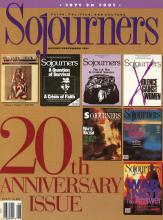The little town of Hedley, British Columbia is surrounded by massive craggy mountains. Dry and rocky, they are studded here and there with evergreens and tufts of grass. They show the reds, grays, and browns of naked rock against the electric blue of the Hedley sky.
In 1971 we lived at the foot of one of those mountains. It was a quiet year of mixed pain and joy. In my personal life there was the beginning of a new marriage, the birth of a child; there was also mourning for the end of my first marriage and missing the children who were not with us.
In the political realm there seemed to be violence everywhere. The war in Vietnam was coming home to the cities of the United States; despair provoked by hidden systemic violence erupted and was met by the same overt violence that was being used in Southeast Asia. We lost friends to despair and to suicide. We watched as war escalated. We lived on the edge, the line between sanity and delusion faint and sometimes blurred. When we read the news it often seemed that what we were reading should have been delusion -- maimed children, defoliated crop -- but it was deathly real.
The horror and the hope were close together: Hope grew from seeing people look the horror in the face and try to respond humanly, out of love and compassion. It was a difficult time to be alive because the hope and the pain were so bound up together. It tore me apart to suckle my newborn child and watch other infants being killed on the news broadcast. It was too much to try to encompass such polar opposites within one being.
The mountains of Hedley were my comfort that year. Rocky mountains are not snuggly, don't say nice things, can't be hugged. But in the middle of the night when sleep was impossible, I would go outside and sit on the front porch of our house.
Read the Full Article

